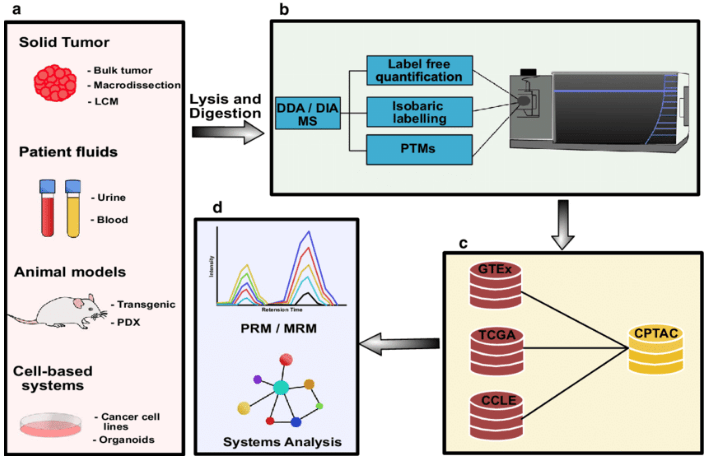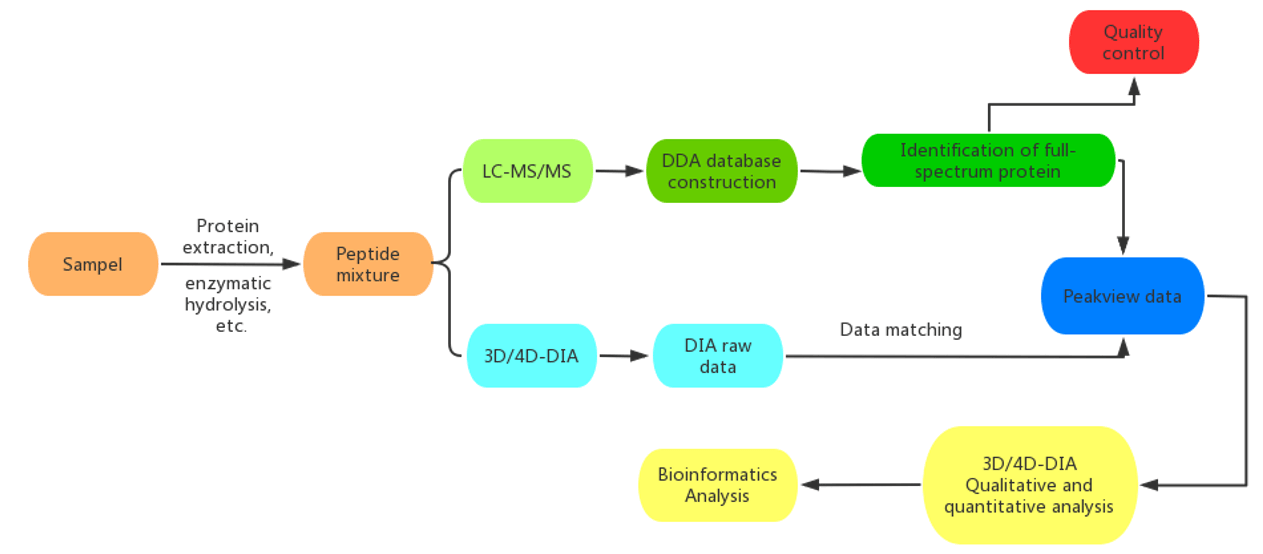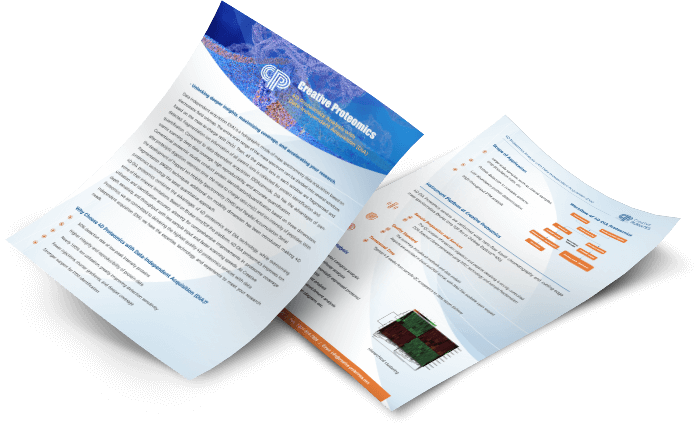Clinical Proteomics Research Solutions
Genomic and transcriptomic analyses are now tools to discover new biomarkers. However, changes in protein expression are more likely to characterize the pathophysiology of the disease. In the past, clinical diagnosis relied on antibody-based assays, which had limitations. Now, mass spectrometry (MS), a powerful approach to proteomics research, enables in-depth studies of disease proteomic changes, thereby facilitating personalized drug development.
Standardized, high-throughput sample preparation techniques have enabled the field of clinical proteomics to expand rapidly at the scale of clinical cohorts. Further improvements in mass spectrometer sensitivity and speed allow deeper proteomic coverage, particularly without the need for extensive pre-separation. Quantitative levels will also allow clinical proteomics to evolve toward minimal input sample size and single-cell proteomics. Higher data processing capabilities can uncover more biological information that can be useful. These advances are all necessary for MS-based clinical proteomics to realize its full potential for translating research findings into clinical practice.
DIA-MS for Clinical Proteomics Research
While most discovery-based clinical proteomics studies still use a data-dependent acquisition (DDA)-based model to identify potential biomarkers or gain biological insights, the field of clinical proteomics is currently shifting toward a new generation of proteomics technology, data-independent acquisition (DIA). DIA has been used in many top research applications by significantly improving the coverage, reproducibility, and accuracy of proteomics analysis with its missile-bombing full-scan data acquisition.
 Overview of clinical cancer proteomics research strategies
Overview of clinical cancer proteomics research strategies
Our Clinical Proteomics Research Services
Since we started to provide DIA technology and 4D Proteomics service, we have accumulated a lot of experience not only in the detection of a large cohort of conventional samples, but also in providing one-stop service of DIA+PRM+machine learning for biomarker studies, tumor-based proteomic typing, and large-scale clinical sample proteomics analysis based on next-generation chromatography (Evosep DIA). Free consultation is welcome.
The clinical samples we can analyze include, but are not limited to:
Workflow of Our Clinical Proteomics Service

Advantages
- High accuracy
- High throughput, up to 9000 proteins can be identified at once
- Quantitatively identify nearly all detectable molecules, covering low abundance proteins/peptides
- High repetition rate
- Complete and comprehensive information storage of samples in the first analysis
- High repetition rate
Application
Our clinical proteomics services can be applied to the following disease research:
- Cancer
- Cranial nerve disease
- Immune disease
- Rare diseases
- Chronic diseases
- Blood diseases
- inflammation
- Infection
- Metabolic disease
Sample Requirements
| Sample Type | Protein | # of Cells | Animal Tissue | FFPE | Blood | Urine | Serum | Microbes |
| Quantify | 100 ug | 1×107 cells | 1 g | 1mg fresh frozen
2 x 5um FFPE slices
Each 50-100nm2 | 1 mL | 2 mL | 0.2-0.5 mL | Dry weighed: 200 mg |
Report
- Experimental steps
- Relevant experiment parameters
- Mass spectrometry spectra
- Raw data
- Proteomics analysis results
Reference:
- Macklin A, Khan S, Kislinger T. Recent advances in mass spectrometry based clinical proteomics: applications to cancer research[J]. Clinical Proteomics, 2020, 17: 1-25.
* For Research Use Only. Not for use in the treatment or diagnosis of disease.

 Overview of clinical cancer proteomics research strategies
Overview of clinical cancer proteomics research strategies

 4D Proteomics with Data-Independent Acquisition (DIA)
4D Proteomics with Data-Independent Acquisition (DIA)